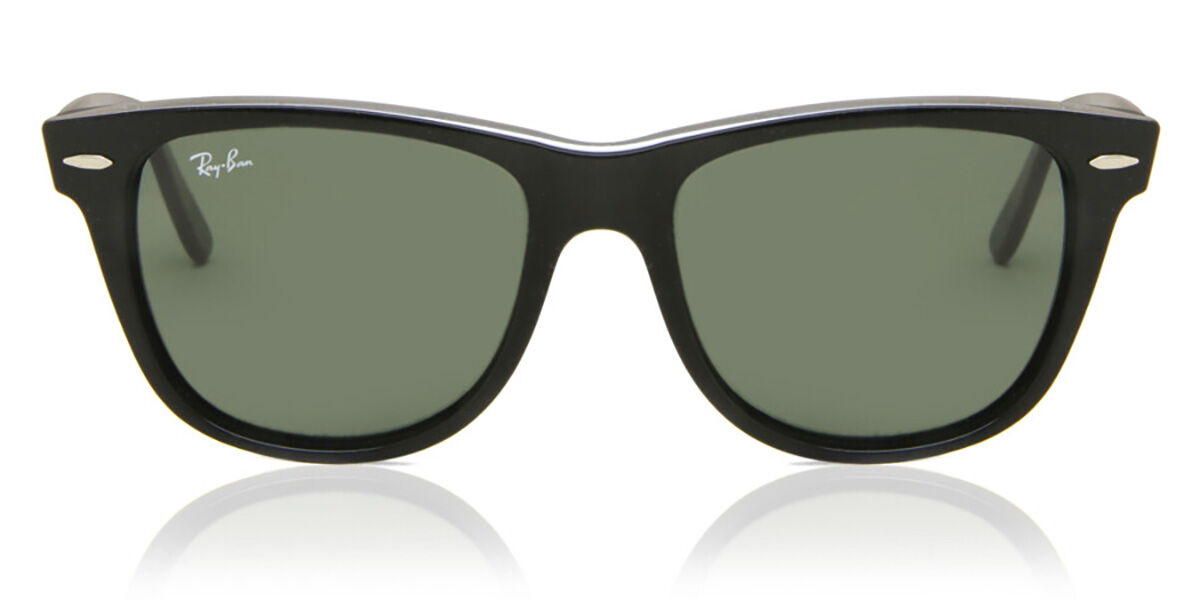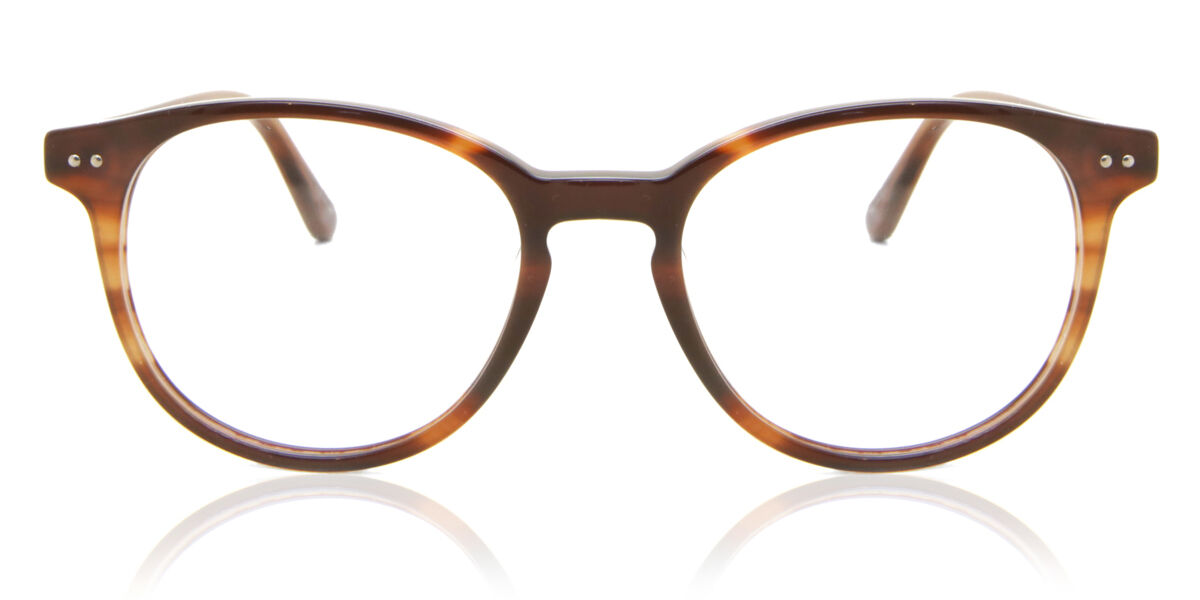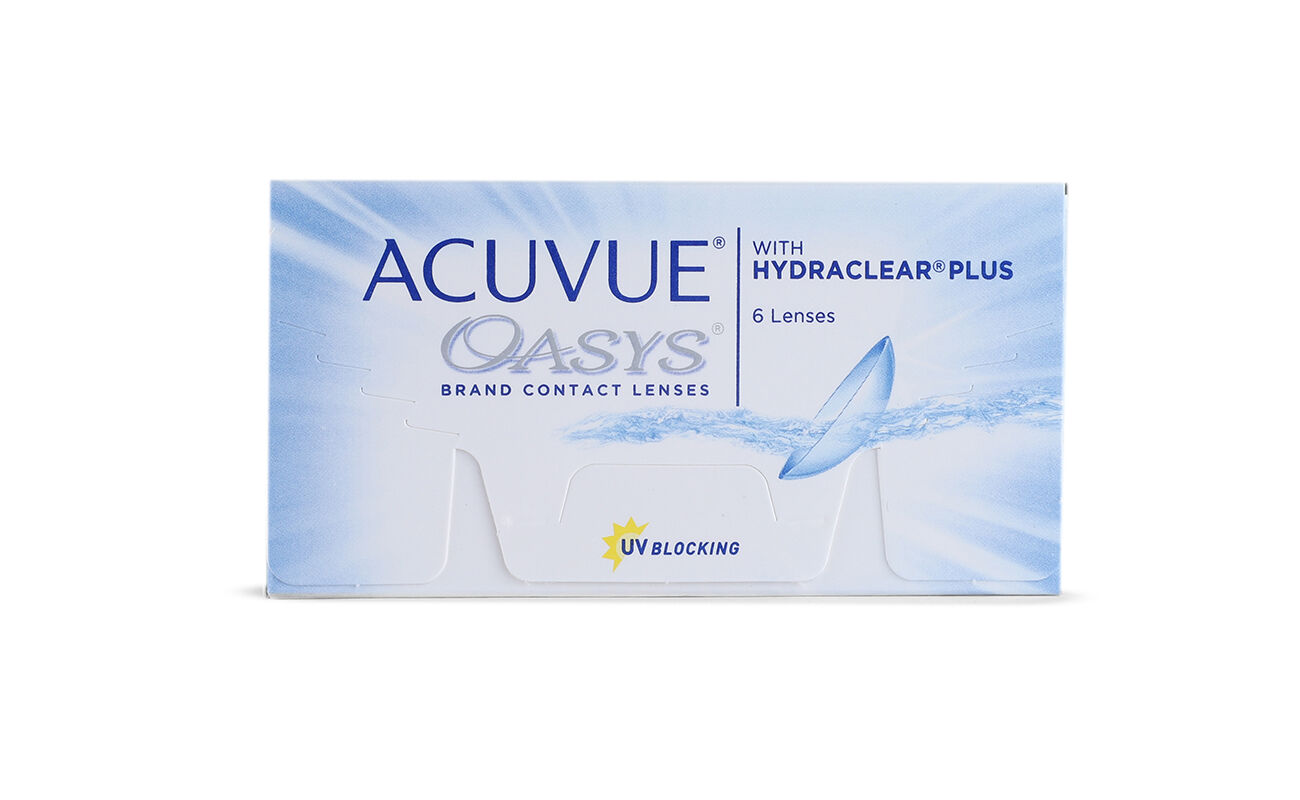
Reviewed by
Beck Jinnette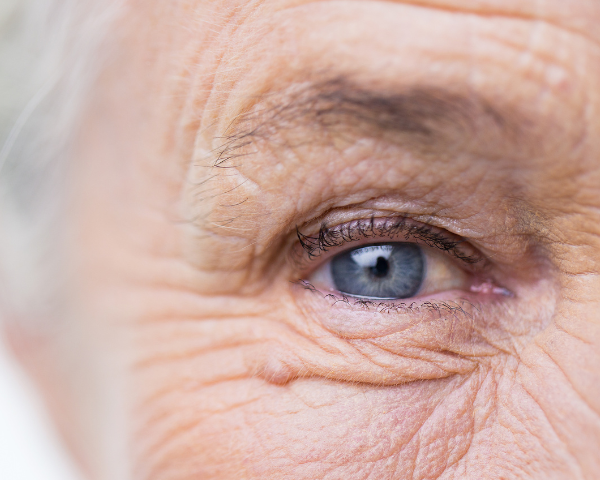
Eye floaters are spots in your vision that drift during eye movement. These eye flashes can become more intense when you look at something bright, such as the blue sky, sun, or artificial light flashes.
Some eye flashes might appear as black spots in vision, dots, or cobwebs that seem to dart away from you when attempting to look directly at them. In very rare cases, they are cause for concern, but it is important to contact your eye doctor immediately if you experience such symptoms.
What causes eye floaters?
One known cause of eye flashes and floaters is age. As the protein fibers that make up the vitreous, a gel-like substance of the eye, begin to shrink down to shreds, they can cause shadows. This is the most common issue causing black spots in vision and does not typically pose any serious threats to your eye health.
Sometimes, if the vitreous pulls away from the back of the eye, it is called posterior vitreous detachment. Floaters more often happen as a symptom along with a posterior vitreous detachment, but you can also get them without one.
Other, less common causes include:
Typically, colored contacts, also known as decorative contact lenses, are available in both prescription and plano forms:
- Eye injuries: Inflammation in the back of the eye due to retinal detachment is one example of an eye injury that can cause floaters in vision.
- Bleeding in the eye: Conditions such as diabetes can cause bleeding in the vitreous humor and can cause you to see black spots.
- Nearsightedness: People with myopia are more likely to experience floaters.
Symptoms of eye floaters
Eye floaters can be a common occurrence for many people, but how do you know if you have them? If you notice tiny specks or cobweb-like shapes drifting across your line of vision, it’s possible you have eye floaters. These small, shadowy spots are caused by small clusters of cells or proteins that form in the vitreous.
While eye floaters typically do not require medical attention, it’s important to stay vigilant of any sudden increase or significant changes in the number and shape of eye floaters. It could indicate a larger issue, such as a detached retina, that could be a medical emergency.
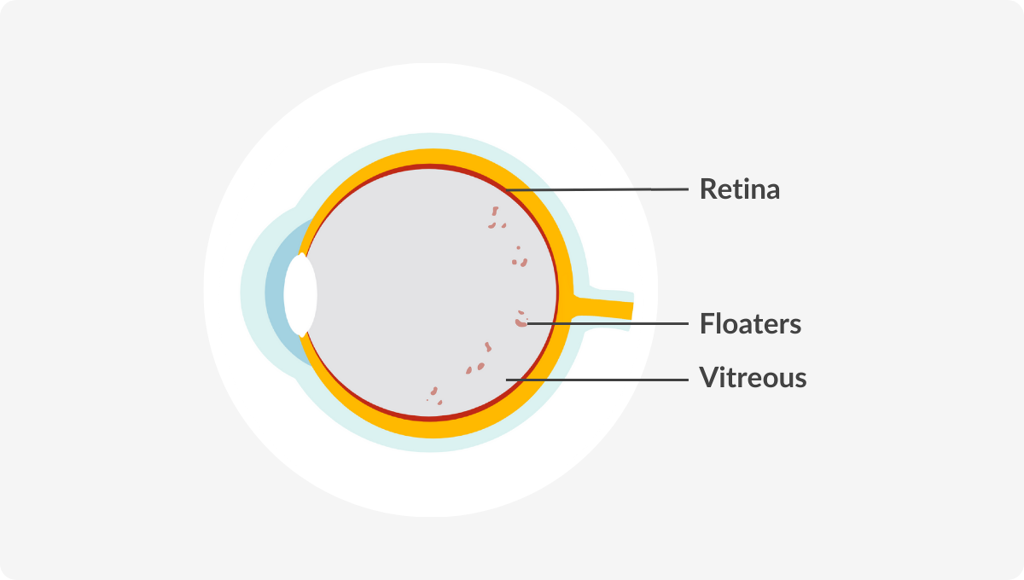
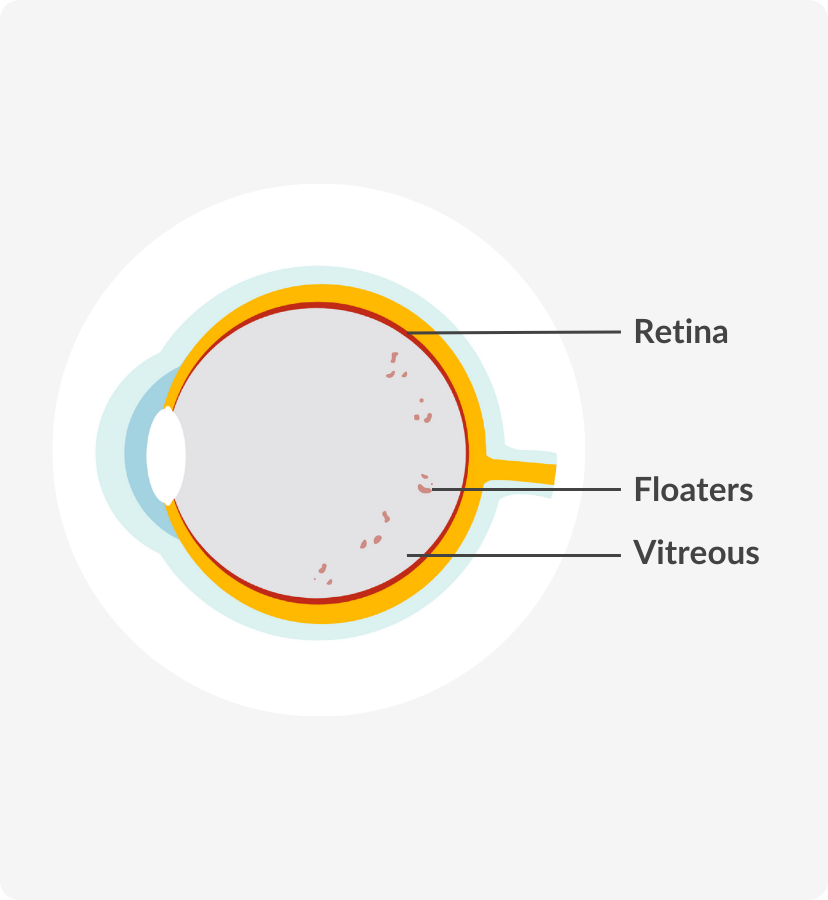
Am I at risk for floaters?
As we age, it’s not uncommon to experience vision problems such as eye floaters. While they don’t typically pose any serious harm, they can indicate underlying health issues such as high blood pressure. Additionally, individuals who suffer from migraines or have undergone eye surgeries may also be more prone to floaters.
If you’re concerned about your general or peripheral vision, it’s always best to consult with your eye specialist to see if you require treatment. They can offer advice on how to manage your symptoms and ensure that any potential health issues are addressed.
When should you see a doctor?
Other signs that suggest you should speak with a doctor include an increased number of black dots, flashes of light or squiggly lines in vision, particularly in the same eye as pre-existing floaters. Darkened vision on the sides of the eye could also be a telltale sign. These symptoms could be linked to more serious issues, such as a retinal tear.
A retinal tear is a serious condition that should be treated immediately. If untreated, it could lead to permanent vision loss. If you have experienced any of these symptoms related to your eye floaters, you should speak to your doctor immediately to ensure you get any necessary treatments to maintain good eye health.
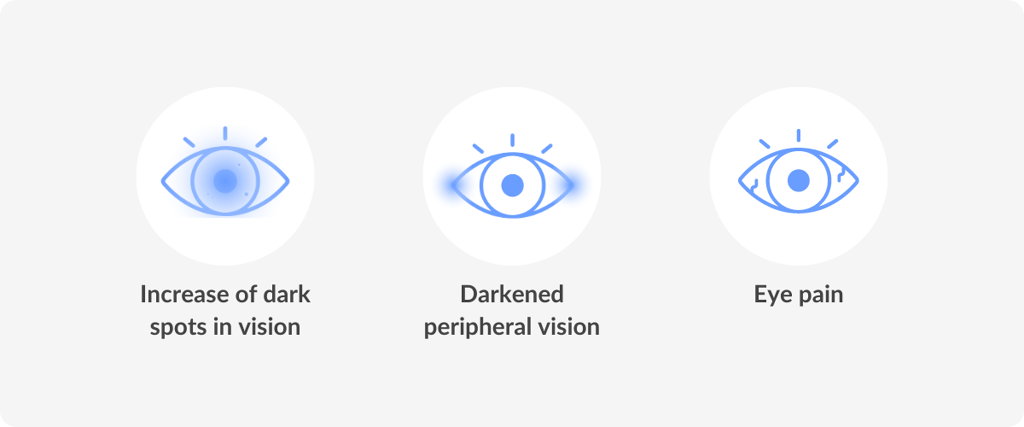
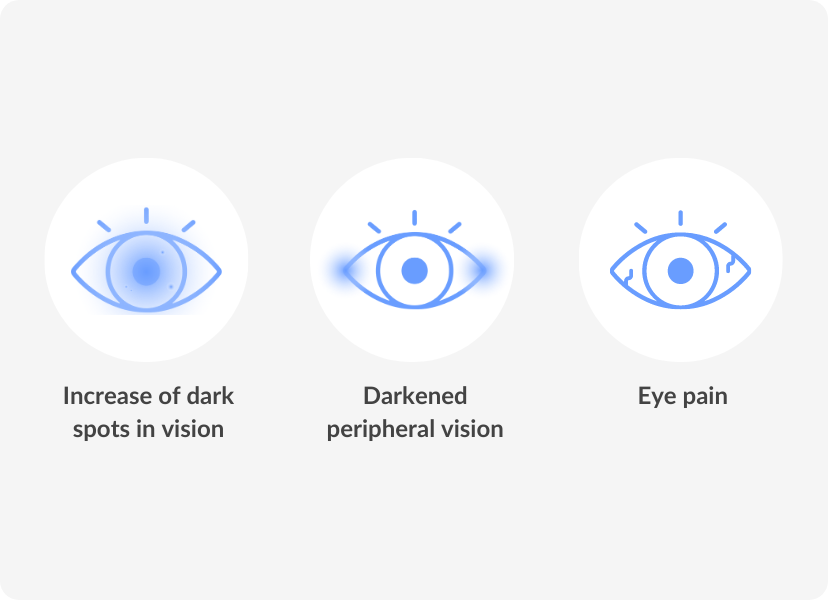
How will my eye doctor check for floaters?
During a dilated eye exam, your eye doctor will carefully inspect your eyes for any abnormalities, including floaters. To check for floaters, your eye doctor will use a special instrument to look at the inside of your eye.
They may also shine a bright light into your eye to better see any changes or irregularities. By carefully examining your eyes, your eye doctor can identify any issues, such as retinal tears early and help keep your vision clear and healthy.





































